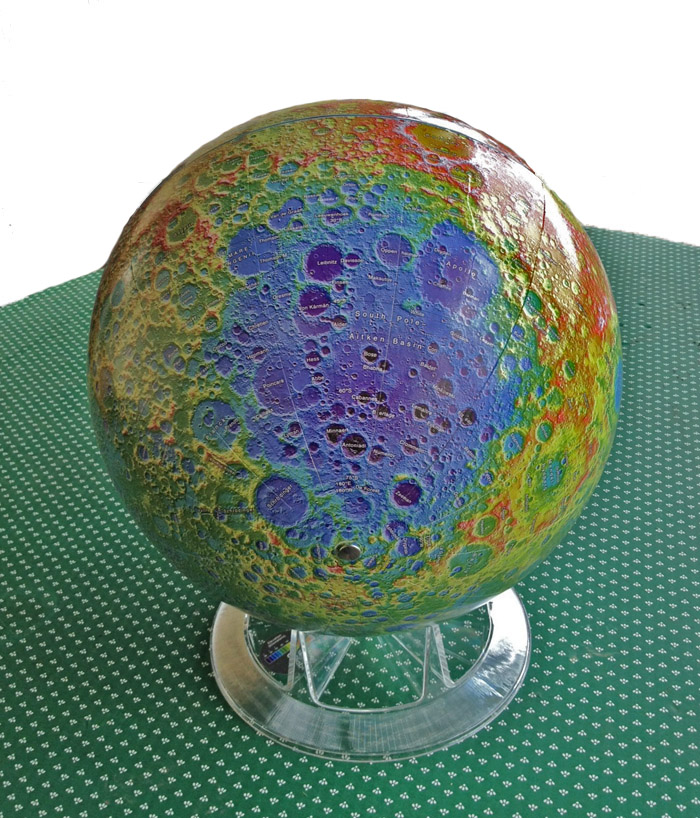January 11, 2023
Hemispheric Hole
Originally published February 17, 2013

image by Chuck Wood
Perhaps the only way to take a reflection-free picture of a globe is to do it in a completely dark room. As soon as I got the
new Sky & Telescope topographic lunar globe I wanted to take a photo to document how big the South Pole - Aitken Basin
is. Looked at from a distance, the basin covers a substantial part of a lunar hemisphere. This view also emphasizes how
little of the basin's rim is preserved. The best part of a basin scarp is near the top of this view, above and a little left of the
Apollo Basin. The only other part of the rim that seems not just aligned bits of later crater rims are the tall peaks - in red
here - near the South Pole. I wonder if those famous tall massifs seen from Earth are matched by other similar isolated
peaks along other parts of the rim? Judging by the lack of red topo in the right places it seems not. There is little evidence
for inner rings of the basin - the mountain range paralleling the northern rim segment is much closer to the rim than any other
basin's inner rings and may be a different type of structure. I wonder if it is the only remnant of a broader nothern rim? Notice
also that the larger craters and basins within the SPA are mostly near the outer parts of its floor rather than the center. That
is also true at Crisium and Imbrium. In those cases the original centers of the basin subsided and were covered by later mare
lavas, burying any large craters that might have formed there. Because there are no thick mare deposits for the SPA basin
that explanation seems unlikely. This new globe is attractive and instructive to study. Get one and you might discover new
questions to ponder.
Chuck Wood
Technical Details
The S&T Topographic Lunar Globe sells for $110.
Related Links
The S&T Moon Globe
Yesterday's LPOD: Cape Land
Tomorrow's LPOD: Slippery Slopes
COMMENTS?
Register, Log in, and join in the comments.



